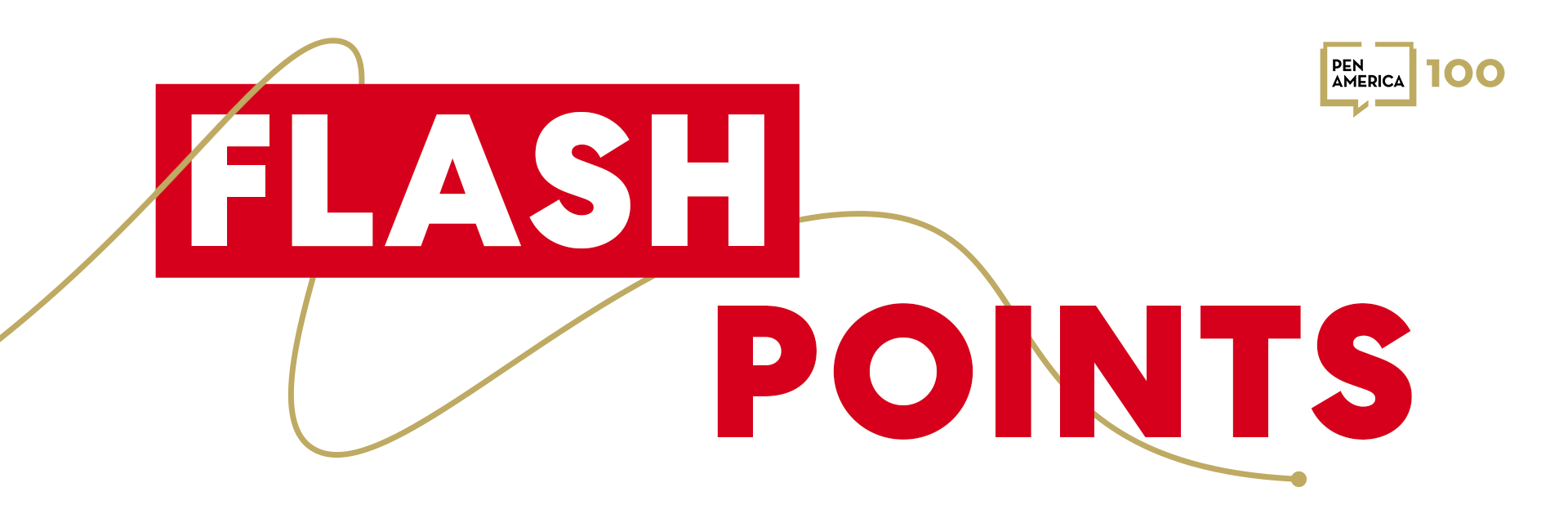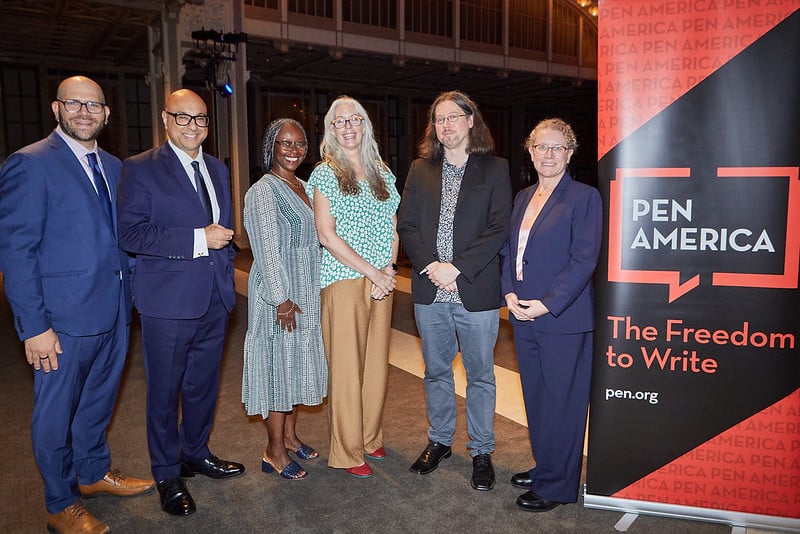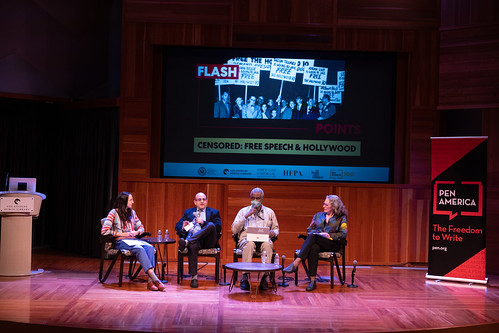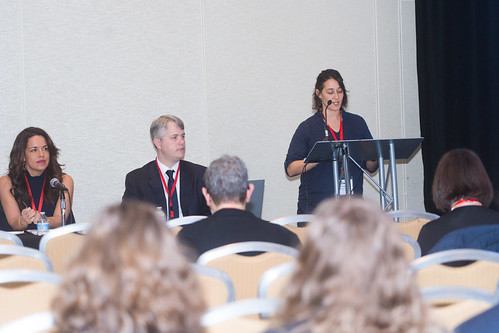Flashpoints: Educational Resource Hub

From May 2022 to May 2023, PEN America and the American Historical Association (AHA) co-hosted Flashpoints: Free Speech in American History, Culture and Society. This series presented the fascinating and complex history of free speech in American democracy to public audiences in cities across the country. In this public event series, preeminent scholars examined how free speech has evolved; illuminated past debates over who has the right to speak; and shed light on present debates about free speech in the context of protest, dissent, and the quest for social change. Learn more about the discussion series here.
What’s in the Flashpoints Educational Resource Hub?
- Comprehensive, downloadable Discussion Guides for each panel discussion topic. The guides are appropriate for high school, college, and university classrooms and other group discussions; and include suggestions for curriculum-related learning outcomes and standards alignment.
- 90-minute long recordings of each panel discussion, including engaging, topical introductions by local performers.
- 5-7 minute-long videos by the panelists that focus on their “flashpoint” moment of interest.
- Links to relevant content in the PEN Digital Archive and primary sources.
Flashpoints has been created in partnership with the American Historical Association and made possible in part by a major grant from the National Endowment for the Humanities: Democracy demands wisdom.
Videos produced by Phatt Features
Free Speech & Political Dissent
How do we protect space for dissent From “gag rules” prohibiting abolitionist views on the congressional floor to the Sedition Act of 1918; from Emma Goldman to obscenity laws, Americans have often pushed the boundaries of politically acceptable speech, and faced robust resistance.
Moderator: Brett Gadsden
Panelists: Barbara Krauthamer, Claire Potter, and Geoffrey R. Stone
Entangled Histories: Free Speech & Civil Rights from the 1960’s to Today
How has the First Amendment been invoked to help or to hinder the progress of civil rights? This discussion will examine how the mid-1960s were a turning point not only for the Civil Rights movement, but also the history of free speech in the U.S. From the Civil Rights Act to landmark Supreme Court decisions, the boundaries of the First Amendment were tested in ways that affected civil rights in the decades following.
Moderator: DeJuana Thompson
Panelists: Carlos A. Ball, Michael Harriot, and Dr. Tara Y. White

Restricted Access: The American History of Book Banning
Censorship and book bans are nothing new in American life. In the 19th century, it was the federal Comstock laws barring the delivery and distribution of “every obscene, lewd, or lascivious” book. Today, books that highlight race, gender, or sexuality are being yanked from public shelves around the country.
Moderator: Ali Velshi
Panelists: Laurie Halse Anderson, Farah Jasmine Griffin, Whitney Strub, Amy Werbel
Censored: Free Speech & Hollywood
By reviewing legislation and court decisions, exploring blacklisted artists, and the opening up of representation in the late twentieth century, this humanities discussion will explore contestations around representing controversial subjects – disfavored political ideologies, women’s sexuality, interracial romance, and more – and the dangers of state-driven attempts to define ‘acceptable’ topics for creative expression.
Moderator: Gillian Wallace Horvat
Panelists: Jeremy Geltzer, Gerald Horne, Maya Montañez Smukler
Free Speech & Schools
Schools are spaces of learning and discipline where students acquire the knowledge to thrive, but is it fair to presume that knowledge is apolitical? What rights should students have to express political views that may spark division and stir controversy in classrooms? The talk will explore the range of methods students have found for expressing dissent, from anti-war armbands to banners advertising offensive messages.
Moderator: Brendan Gillis
Panelists: Justin Driver, Natalia Mehlman Petrzela, Jon Zimmerman
Free Speech & Hate: History’s Lessons
Should the right to free speech extend to the right to engage in hateful expression? At many points in U.S. history, the First Amendment has been invoked to protect the freedom to denigrate people and groups. From decades-old media like The Birth of a Nation, a film that celebrated the racist ideologies of the Ku Klux Klan, to recent legal battles over the reclamation of racial slurs as seen in Matal v. Tam, the question of just how far free speech should go is the focus of this panel discussion. This discussion tackles the question of how a diverse, democratic society can defend free speech while also standing up to bigotry.
Moderator: Karlos Hill
Panelists: Jennifer Ho, Randall Kennedy





